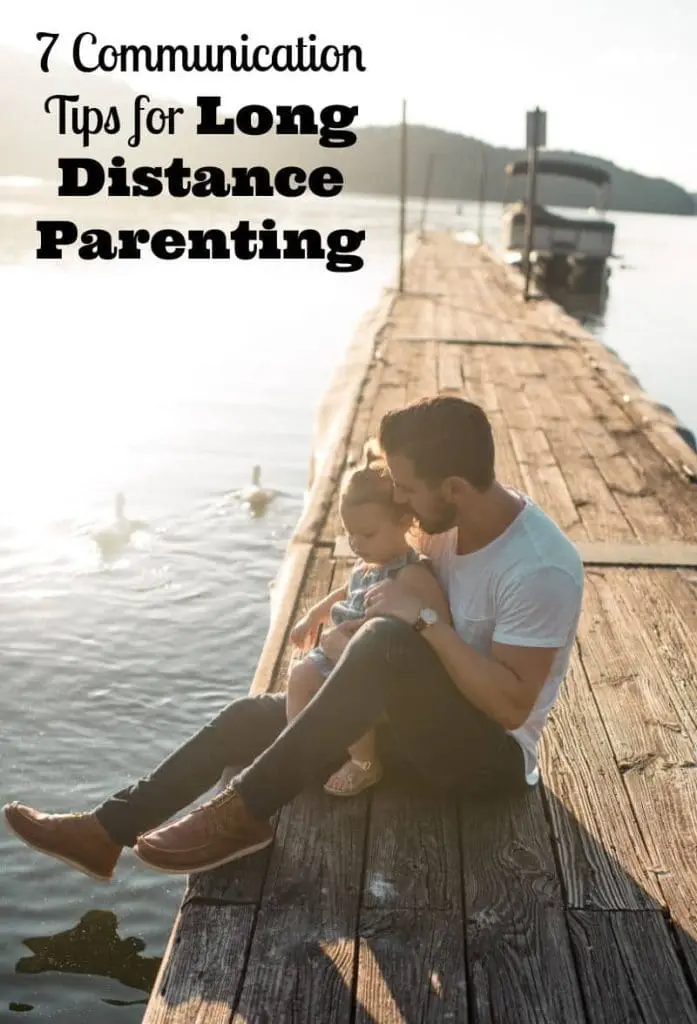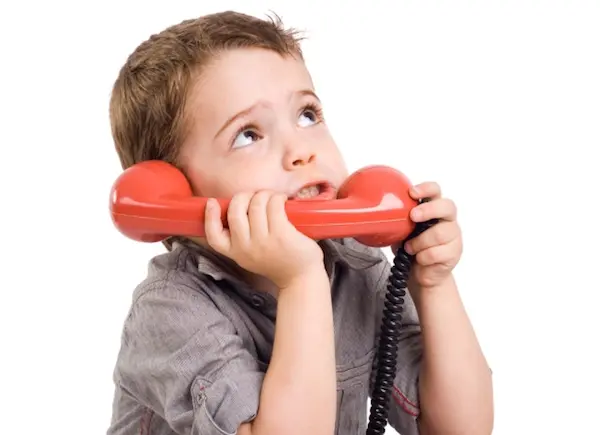My ex-wife (and the mother of my son) lives in a different state than my son and I, but we still have a strong and healthy relationship – and we co-parent very well. One of the main reasons we do so is because we collaborate and communicate well. We both know that great communication skills are the cornerstone of any relationship and we keep that in mind at all times when dealing with our son.
As the long distance parent, you must work to maintain your relationship with your child. You may feel angry that this task falls on your shoulders since you may not have initiated the move in the first place and it’s easy to feel like a victim and spend your energy on “the blame game” but don’t go there! Being a long distance parent does not mean that you will disappear from your child’s life. It just requires some creativity and cooperation to pull it off successfully. So, with that said, here are seven great communication tips that we use as part of long distance parenting.

7 Communication Tips for Long Distance Parenting
Long-distance parenting refers to a situation where one or both parents live far away from their children. This can happen due to various reasons such as work commitments, divorce, or other life circumstances. Managing long-distance parenting can be challenging, but with effective communication and effort, parents can still maintain strong relationships with their children. Here are some tips for long-distance parenting:
1 – Stay Involved
Remain interested and involved in your child’s life. Make it a point to know the names of the adults who interact with your child. Teachers, coaches, doctors, other parents, neighbors etc. Also, know the names of your child’s closest friends. Take an interest in their homework, their free time activities, and other things that your child enjoys or is involved with.
2 – Make The Effort
Remember you are the adult and it is your responsibility to initiate contact with your child. If you are the non-custodial parent, don’t sit passively by, waiting for you child to call you or send you an e-mail. Take the lead but also keep in mind not to take it personally if your child doesn’t call you right back or only stays on the phone for a few minutes. This is normal for kids and usually has nothing to do with you.
3 – Have A Long Distance Parenting Plan
A long-distance parenting plan is a written agreement or court-ordered document that outlines how separated or divorced parents will share custody and maintain their relationship with their child when they live far apart—typically in different cities, states, or even countries. A Visitation Schedule should include detailed plans for school breaks, summer vacation, holidays, and special occasions.
In addition, initiate a regular schedule for contact and follow it faithfully. If you say you’re going to call then call. If you are going to send an e-mail, do it. Keep your word. All relationships are built on trust and predictability. As a long distance parent you want to take the kind of communication steps that keep you on (and in) the mind of your child. That means regular, predictable, positive contact and interaction.

4 – Use Open Ended Questions
When talking with your child, try to avoid asking questions that will give you yes or no or one word answers. For example, instead of asking “Did you have fun at school today?” which is likely to get you a yes or no and then silence, ask instead “What was your favorite thing about school today?” At least that way, you’re likely to get some information. Plus, if you know the projects your child is working on, or the homework they have, you can tailor your questions specifically.
5 – Don’t Pry For Info About Other Parent
Never use your communication time with your child to grill him or her about the other parent and/or things that are going on in the other household. Keep your child out of the middle of any problems or interaction that you may have with the other parent. Taking the high road is always the winning choice. Do not make your kid the messenger.
6 – Try For Regular Face Time
Think beyond the telephone when it comes to connecting with your child. If your child is old enough to have access to a computer, get an e-mail relationship going. You can also send cards, exchange photos, and forward information that will be of interest to your child. We also use Skype and FaceTime a lot – and with great success. While virtual interaction will never take the place of “in person” time, it’s great to be able to see your child and have a virtual “face to face” conversation.
7 – Be Positive
Maintain a positive attitude. If you feel the need to encourage better grades or improved behavior, make sure you balance those comments with positive ones. The simple truth is that kids are no different than adults. None of us want to hear how bad we are or what a poor job we are doing. Make sure you are giving constructive feedback.
Conclusion
If you cannot physically be present for birthdays, holidays, or other special occasions, find creative ways to celebrate together virtually. Send gifts or arrange for surprise deliveries. Remember that maintaining a strong relationship with your child from a distance requires effort, commitment, and creativity. Regular and meaningful communication, along with genuine interest and involvement in your child’s life, can help nurture a strong parent-child connection despite the physical separation.
With all of these communication tips the main thing to remember is to stay in contact with your child’s other parent and respect their rules. Working together for the greater good of raising a well rounded and well adjusted kid is all the incentive you need to communicate well. Single parenting can be hard but you can be successful at long distance parenting- no matter where you are- if you employ these important communication skills. What are your best long distance parenting tips?
Related Posts:
Tips Talking And Really Listening To Children

angela@spinachtiger says
Great tips. I hope parents living in different states would be motivated to change that. I would recommend using skype or facetime if this is the situation.
Sharon Ballantine says
These are great communication tips for all parents–whether they are in different states, the same town, or even the same household.
By maintaining a positive attitude and engaging our kids rather than badgering them, we foster a healthy relationship that they can model with others as they grow up.
If you have more than one child I would add giving each of your kids time individually as well as group calls/emails/Skype sessions.
Joanna says
I think it is so important to create a consistent schedule for communication and visits. This helps provide stability for the child and ensures that both parents stay actively involved in their lives. I find that video calls, instant messaging, and social media platforms can help bridge the physical gap and allow for more meaningful interactions.